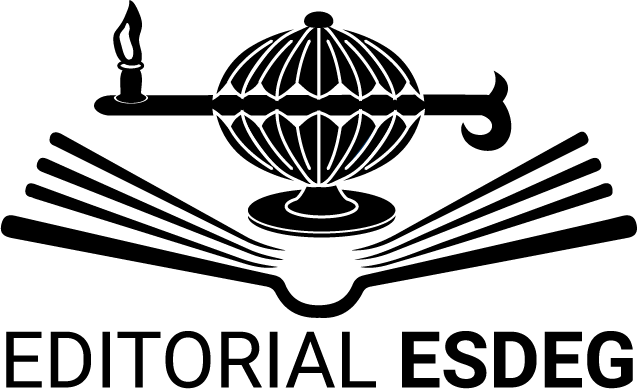Leadership in the Colombian Military Forces: A comprehensive experience in the fight against terrorism
DOI:
https://doi.org/10.25062/1900-8325.242Palabras clave:
Human Rights, International Humanitarian Law, Military Forces, Leadership, Defense SectorResumen
Colombia has fought an irregular war, including guerrilla warfare and a counterinsurgency generated by different armed groups operating within the margins of the law (Sánchez-Cabarcas, 2009). These groups have victimized the nation with violence surrounding the drug trade, forced displacement, forced disappearances and terrorism. The Colombian National Army has played a great role in this irregular war where it has won the victory by its position as a leader throughout Colombia with different actions in education and in full compliance with international provisions related to Human Rights, International Humanitarian Law and the strategic positioning of the defense sector.
Biografía del autor/a
Luis Ernesto Cortés Díaz Granados, National Army of Colombia
Lieutenant – Colonel of the National Army of Colombia, Director of the Center for Strategic Studies on Security and National Defense CSSSND of the Superior School of War - Master of Science in Defense Analysis-- Naval Postgraduate School, University of Monterrey – California. Contact: luisernesto.cortes@gmail.com
Jaime Alfonso Cubides Cárdenas, Superior School of War
Lawyer and specialist in Public Law of the Autonomous University of Colombia, Specialist and Magister in Teaching and research with emphasis in the juridical sciences and Magister in Administrative Law of the Sergio Arboleda University. Research Adviser at CSSSND of the Superior School of War. Contact: jaimecubides@ gmail.com
Antonio Fajardo Rico, University of the Amazonia
Lawyer of the University of the Amazonia and professional in management of the National University (UNAD), specialist in management and human talent of the University of Amazonia. Nowadays he is studying a master in Human Rights and International Humanitarian Law in the Catholic University of Colombia. Investigator opf the research group of Environmental and Peace Observatory of the Amazonia University. Contact: gerencia@fa- jardomurciaabogados.com
Referencias bibliográficas
Alcázar, J. (2007). El Liderazgo: Un poder relativo. Revista de ciencias sociales, 115, 103-124.
Bass, B. (1999). Two decades of research and development in transformational leadership. European Journal of Work and Organizational Psychology, 8, 1, 9-32. https://doi.org/10.1080/135943299398410
Castro, A, Becerra, L & Lupano, M. (2007). Prototipos de Liderazgo en población civil y militar. Interdisciplinaria, 24, 1, 65-94.
Estrada, S (2007).Liderazgo a través de la historia. Scientia et Technica, XIII, 34, 343-348.
García-Guiu, C (2012). El Liderazgo militar ante la complejidad. Boletín Electrónico- Instituto Español de Estudios Estratégicos, 58, 1-15. Recuperado de http://www.ieee.es/documentos/areas-tematicas/seguridad-y-defensa/2012/detalle/DIEEEO58-2012.html
Huaylupo, J. (2007). El Liderazgo: Un Poder Relativo. Rev. Ciencias Sociales Universidad de Costa Rica, 115, 103-124, p. 108.
Moloeznik, P. (2004a). Presente y futuro de las fuerzas armadas (reflexiones sobre política de defensa e Instrumento militar en el hemisferio). En América Latina: integración, democracia y desarrollo-Retos para el siglo XXI, Argentina, p. 63.
Moloeznik, P. (2004b). El creciente valor de los intangibles: Reflexiones en torno al Liderazgo en situaciones adversas o límite. Acta Republicana- Política y Sociedad, 3, 3, 59-63, p. 268.
Rodríguez, T. G. (2012). El terrorismo y nuevas formas de terrorismo. Espacios públicos, 15 (33), 72- 95.
Rojas, A. & Gaspar, F. (2006). Bases del Liderazgo en educación. OREALC- UNESCO: Santiago, Chile, p. 23.
Ruiz & Palomino, P. (2009). Últimas tendencias en el estudio sobre Liderazgo. Revisión de la literatura. Documento de trabajo- Seminario permanente de ciencias socia- les. Universidad Castilla de la Mancha (UCLM) - Facultad de Ciencias Sociales de Cuenca: Cuenca, España. Disponible en http://www.uclm.es/cu/csociales/pdf/documentosTrabajo/2009/05.pdf
Sun-Tzu, (1983). El Arte de la Guerra, Emecé: Buenos Aires, p. 113
Torres-Horton, A. (2012). Liderazgo militar en el siglo XXI, desafío ante una nueva sociedad. Academia de Guerra Naval- Trabajo de Investigación, 1, 1-23.
Vanoni, G. (2013). Liderazgo Militar: Una aproximación desde la complejidad. Heurística- Revista Digital de Historia de la Educación. 16, 185-192.
Cómo citar
Descargas
Descargas
Publicado
Número
Sección
Licencia
Derechos de autor 2020 Estudios en Seguridad y Defensa

Esta obra está bajo una licencia internacional Creative Commons Atribución-NoComercial-SinDerivadas 4.0.

| Estadísticas de artículo | |
|---|---|
| Vistas de resúmenes | |
| Vistas de PDF | |
| Descargas de PDF | |
| Vistas de HTML | |
| Otras vistas | |
















